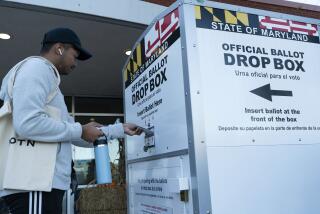Restoring Civil Rights
- Share via
Congress has reaffirmed broad government powers to enforce the nation’s civil-rights laws. First the Senate and then the House voted on Tuesday to override President Reagan’s veto of the Civil Rights Restoration Act, rejecting flamboyant misstatements about the law and renewing the federal commitment that the public’s money cannot be spent at any institutions that treat women, minorities, the handicapped and the elderly unfairly. It was a resounding defeat for the President, one that should also show Vice President George Bush how wrong he was to support the veto.
A 1984 Supreme Court ruling took away one of the federal government’s most effective enforcement tools--the threat that it would cut off all federal funds if discrimination occurred in any part of the institution that got them. The court said, no, money could be terminated only if the program receiving the funds was the one also guilty of discrimination. The government then dropped or downgraded hundreds of discrimination cases.
The Moral Majority and other groups would have the public believe that the law passed to correct that interpretation would allow transvestite dope addicts with AIDS to work at the local church, that small grocery stores that accept food stamps would be bound by federal rights law, and other nonsense. Just as opponents of civil-rights laws did in the 1960s, and as those opposed to the equal-rights amendment did a few years later, these groups took vast liberties with the truth even as they claimed to be protecting human rights.
The new law does these things:
--If a state health department program gets federal money, the whole health department must comply with laws against discrimination.
--If a college gets a federal grant for computer sciences, the entire college is barred from discriminating.
--If a private corporation gets federal aid--like Chrysler Corp. did in its bail-out--or provides education, health care or other social services, it is covered by the law.
--If a farmer receives a crop subsidy, he is not covered--and never has been--because he is not considered the “ultimate beneficiary” of federal aid. People who get Social Security, Medicare, Medicaid and food stamps also aren’t covered. Any operation of a group controlled by a religious organization is exempt, as it was under the previous law.
In the Senate all Democrats and 21 Republicans opposed the President on the issue, ignoring the shrill voices of groups that obviously oppose equality under the law.
More to Read
Sign up for Essential California
The most important California stories and recommendations in your inbox every morning.
You may occasionally receive promotional content from the Los Angeles Times.













